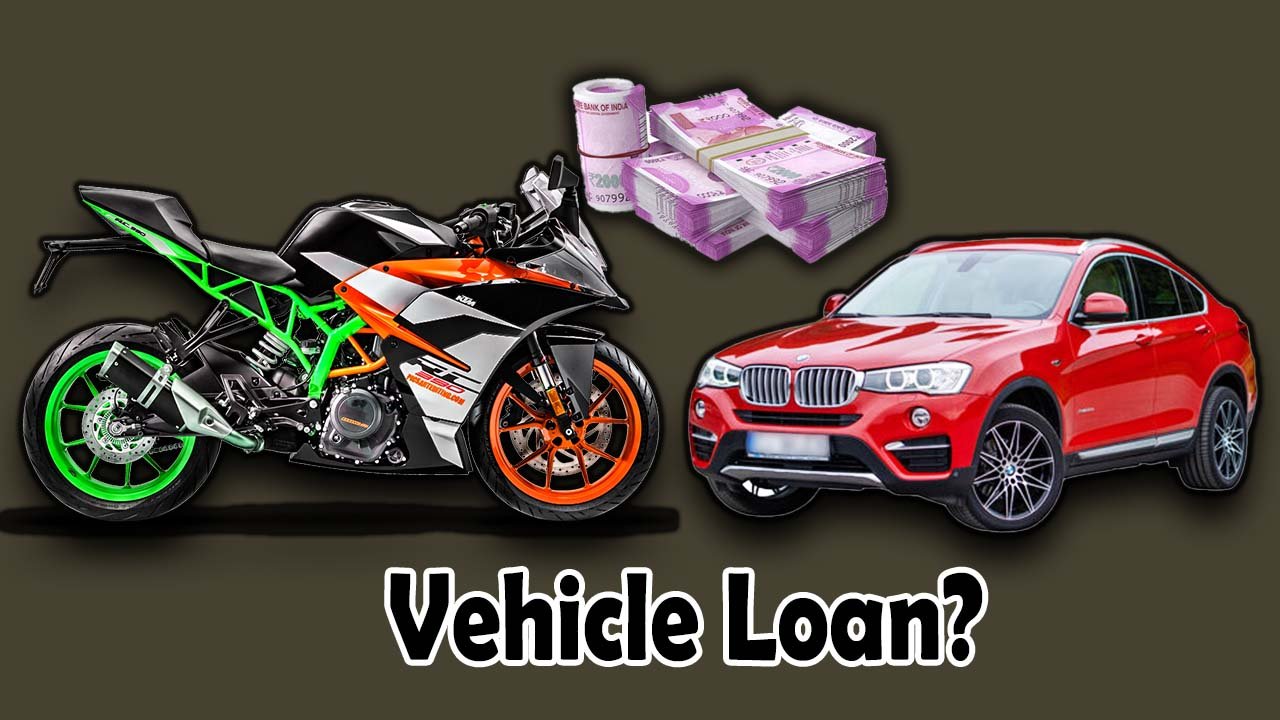In today’s fast-paced world, owning a vehicle has become more of a necessity than a luxury for many. Whether it’s commuting to work, running errands, or simply enjoying a road trip, having access to a reliable mode of transportation is crucial.Then again, many individuals might find the underlying expense of buying a vehicle to be unaffordable.This is where car credits become an integral factor, permitting clients to buy the vehicle of their fantasies without breaking the bank.We’ll plunge into the universe of car credits here, giving you all the data you want to pursue an educated decision.
What is a Vehicle Loan?
A vehicle loan is a financial agreement where a lender provides funds to a borrower for purchasing a car. It’s also known as an auto loan or car finance.Consequently, the borrower consents to reimburse the credit sum alongside interest over a set period. These advances are accessible from different monetary foundations like banks, credit associations, and online loan specialists.
How Do Vehicle Loans Work?
While you’re pondering getting cash for a vehicle, the bank needs to promise you can manage it competently. They’ll review factors like your compensation, work relentlessness, and existing commitments. Expecting that they’re sure about your ability to repay the development, they’ll give you a suggestion. This recommendation integrates the credit total, the interest you’ll pay, and the repayment length.
Accepting that you’re content with the terms and agree to them, you’ll sign the significant work area work. Some time later, the bank will move the resources for you, allowing you to go on with your vehicle obtaining.It’s like receiving the green light to make your dream car a reality!
Types of Vehicle Loans
Secured Loans: Think of secured loans like a friend borrowing your favorite video game console. If they promise to return it but don’t, you have the right to take it back. Similarly, with secured loans, the lender uses your car as a promise. If you can’t pay back what you owe, they can take your car. Because the lender has something to hold onto (your car), they feel safer lending you money. That’s why secured loans usually have lower interest rates.
Unsecured Loans: Now, imagine your friend asks to borrow something without leaving anything as a promise. They just say they’ll give it back. That’s what unsecured loans are like—they don’t require any collateral, like your car. Since the lender doesn’t have anything to keep if you can’t pay, they’re taking a bigger risk. That’s why unsecured loans often have higher interest rates and stricter requirements for who can get them.
New Car Loans: These loans are specifically designed for purchasing brand new vehicles. They often come with lower interest rates and longer repayment terms.
Used Car Loans: Used car loans are tailored for buying pre-owned vehicles. The interest rates may be slightly higher than new car loans, but they still offer competitive terms.
Refinance Loans: If you’re unhappy with your current vehicle loan terms, you can refinance your loan with a new lender to potentially secure better rates and terms.
Benefits of Vehicle Loans :
Affordability: Vehicle loans allow you to spread the cost of your vehicle over time, making it more affordable to purchase.
Flexibility: With various loan options available, you can choose a loan term and repayment schedule that fits your budget and lifestyle.
Ownership: Unlike leasing, where you only pay to use the vehicle, a vehicle loan enables you to own the car outright once you’ve paid off the loan.
Credit Building: Making timely payments on your vehicle loan can help improve your credit score, making it easier to qualify for future loans and credit cards.
Factors to Consider Before applying for a vehicle loan, there are several factors you should consider:
Interest Rates: Compare interest rates from multiple lenders to ensure you’re getting the best deal.
Loan Terms: Longer loan terms may result in lower monthly payments but could cost you more in interest over the life of the loan.
Down Payment: Making a larger down payment can reduce the amount you need to borrow and lower your monthly payments.
Total Cost: Consider the total cost of the loan, including interest and fees, to determine the affordability of the loan.
Tips for Getting Approved :
To increase your chances of getting approved for a vehicle loan, follow these tips:
Check Your Credit Score: Review your credit report and score before applying for a loan. If your score is low, work on improving it before seeking financing.
Shop Around: Don’t settle for the first loan offer you receive. Compare rates and terms from multiple lenders to find the best option for your needs.
Gather Documentation: Be prepared to provide proof of income, employment history, and other relevant documents to support your loan application.
Negotiate: Don’t be afraid to negotiate with lenders to secure better rates and terms. You may be able to get a lower interest rate or higher loan amount with the right negotiation skills.Vehicle loans provide individuals with the opportunity to own a car without having to pay the full purchase price upfront. By understanding how these loans work and considering factors such as interest rates, loan terms, and total cost, you can make an informed decision that fits your budget and financial goals. Remember to shop around, compare offers, and negotiate with lenders to secure the best possible deal. With the right approach, you’ll be cruising down the road in your new car in no time!
FAQs on Vehicle Loans
What is a vehicle credit?
A vehicle credit is a kind of monetary game plan where a loan specialist gives assets to a borrower to the motivation of buying a vehicle. The borrower consents to reimburse the credit sum, alongside interest, over a predetermined period.
What sorts of vehicles might I at any point buy with a vehicle credit?
Vehicle advances can be utilized to back different kinds of vehicles, including vehicles, trucks, SUVs, cruisers, and sporting vehicles (RVs).
How would I meet all requirements for a vehicle credit?
Capability standards for vehicle advances regularly incorporate factors, for example, financial assessment, pay, business history, and existing obligations. Banks may likewise consider the worth of the vehicle being bought and the borrower’s capacity to make an up front installment.
What is the contrast between a got and unstable vehicle credit?
A got vehicle credit is upheld by guarantee, for example, the actual vehicle, which the bank can repossess in the event that the borrower defaults on the advance. Conversely, an unstable vehicle credit doesn’t need insurance and ordinarily has higher financing costs and stricter qualification standards.
What amount could I at any point get with a vehicle credit?
The sum you can get with a vehicle advance relies upon different variables, including your reliability, pay, and the worth of the vehicle being bought. Moneylenders normally offer credit sums going from two or three thousand bucks to a huge number of dollars.
What is the credit term for a vehicle credit?
Advance expressions for vehicle credits can fluctuate, however they ordinarily range from two to seven years. More limited credit terms bring about higher regularly scheduled installments yet lower in general interest costs, while longer advance terms lead to bring down regularly scheduled installments yet higher absolute interest costs.
How would I apply for a vehicle credit?
To apply for a vehicle credit, you can visit a bank, credit association, or online loan specialist and finish up an application structure. You’ll have to give data about your pay, work history, and the vehicle you wish to buy. The moneylender will then, at that point, survey your application and decide if you meet all requirements for the credit.
Could I at any point renegotiate my current vehicle advance?
Indeed, you can renegotiate your current vehicle credit to possibly get better terms, for example, a lower loan fee or longer reimbursement term. Renegotiating includes applying for another credit with an alternate moneylender to take care of the leftover equilibrium of your ongoing credit.
What occurs in the event that I can’t make my vehicle credit installments?
In the event that you can’t make your vehicle advance installments, you risk defaulting on the credit, which can prompt outcomes, for example, late expenses, harm amazingly score, and repossession of the vehicle by the bank. It’s fundamental to speak with your moneylender in the event that you’re encountering monetary hardships to investigate expected arrangements.
Are there any expenses related with vehicle credits?
Indeed, there might be charges related with vehicle credits, for example, start expenses, prepayment punishments, and late installment charges. It’s vital for survey the credit arrangement cautiously and see any charges prior to consenting to the details of the advance.
Read More..
- How To Apply For Debt Consolidation Loan | A Simple Way to Manage All Your Loans

- How Can Any One Apply For Startup Loan | Simple Way to Get Money for Your New Business

- How To Apply Wedding Loan: An Easy Way to Pay for Your Marriage Expenses

- Parent PLUS Loan: A Simple Guide for Families to Fund Higher Education

